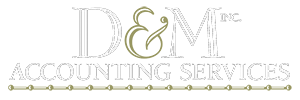There are a few arguments in favor of hiring in-house accountants. Most of them revolve around the company’s need to have all aspects of its operations under one roof. Outsourcing is a more modern approach. Your accountants won’t be based on-site, but they will be fully focused on the tasks you assign to them. Here are seven reasons why that’s a good idea.
1. Outsourcing Frees Up Your Time
Managing an in-house employee or team of employees requires more of your time than outsourcing does. The in-person interactions alone can consume an hour or two a day. That’s without the added time needed for hiring, training, evaluating, and actual managing. You can assign some of those tasks to others, but then it consumes their time.
The 2020 Pandemic taught us a lesson about the effectiveness of remote business models. Professionals can do their jobs anywhere. Accountants need a computer, an internet connection, a printer, and a phone. We have all that equipment in our office. There’s no need for us to take up space in yours. Many of our clients work remotely themselves.
2. Full-time Employees are More Expensive
Take a second look at what we wrote in the previous section. Add up the cost of all that hiring, training, evaluating, and managing. In-house employees are simply more expensive than outsourced accounting firms. You also don’t need to provide us with health care, retirement savings accounts, or sick days. We already have that covered.
In 2023, the average salary for an accountant in the United States was $74,240 a year. Your cost for that accountant, if you hire them as an in-house employee, could range as high as $94,500 per year. Compare that number to what it would cost to outsource your accounting services. Using the outsourced firm should be significantly more cost-effective.
3. On-Demand Professional Expertise
An in-house accountant can handle accounts payable and accounts receivable, and maybe even prepare your taxes for you. What they can’t do is provide the on-demand professional expertise that a full-service accounting team can give you. The team has more resources than an individual. We also keep track of current accounting trends and regulations.
This expertise is available on demand to your firm when you outsource your accounting to us. We want to be your partner, not your employee. You get the full knowledge and services of our firm any time you need them without the added responsibilities that come with managing employees. Add that to the time and financial savings we’ve already covered.
4. Improved Efficiency in Other Areas
Taking the accounting responsibilities out of your hands can make you more efficient in other areas. If you’re a business owner, that frees you up to focus on other aspects of your business. Outsourced accountants can handle payroll, budgeting, expense management, and other accounting tasks that you and/or your management team don’t have time for.
This is a concept that can be extended to other functions of your company. Many businesses outsource human resources, IT, sales, or marketing. Legal services are often acquired remotely as needed, eliminating the cost of expensive legal retainers. As your accountant, we can analyze the costs of these services and the savings you’ll enjoy from outsourcing them.
5. Liability is Assumed by the Accounting Firm
The issue of liability is one of the most compelling arguments for outsourcing your accounting services. Using an in-house employee to prepare financial statements and taxes puts the liability for mistakes solely on your shoulders. There’s no buffer between you and the Internal Revenue Service (IRS) or Securities Exchange Commission (SEC).
Liability is a topic you’ll want to pay close attention to as your company grows. A single-owner LLC is a pass-through entity with simple tax requirements. A public C-Corp with shareholders is subject to more complex regulations. Outsourcing your accounting transfers liability and gives you access to a team that’s done dozens of similar filings for firms like yours.
6. Accounting Firms have Better Software Solutions
In-house accountants don’t have time to shop for better software. Accounting firms need to have the best technology available to keep up with their competitors. That means regularly updating existing software and evaluating new fintech solutions created specifically for accountants. Examples of this are AR/AP solutions and billing software.
Accounting software works best when it’s shared between the accountant and the client. At D&M Accounting, we offer our clients software training in the latest versions of QuickBooks, Excel, and Word. For your convenience, we also provide reviews and links to Quicken, Bookkeeper, AccountEdge, DacEasy, Simply Accounting, and NetSuite.
7. Outsourced Services are Easier to Scale
In-house accountants are paid employees who need to work a certain number of hours. They could be on a part-time schedule or a full-time schedule. The constant with either is that you need to pay them even when there’s no work for them to do. Outsourced accounting doesn’t work like that. You pay us only when you need us. That makes our service more scalable.
Think about the accounting processes your company needs. Payroll probably requires the most effort. It’s not a full-time job. Accounts payable and accounts receivable are time-consuming, but a lot of the work can be automated. Financial reporting is a quarterly exercise. None of these require a full-time employee in your office. Outsource and scale them when needed.
The Bottom Line
Outsourcing your accounting saves you time and money. It gives you on-demand professional expertise when you need it, improves your efficiency in other areas, and transfers the liability for mistakes to the accounting firm. Add all that to better software solutions and the scalability of outsourced services. Give us a call at 262-253-9955 to learn more.



